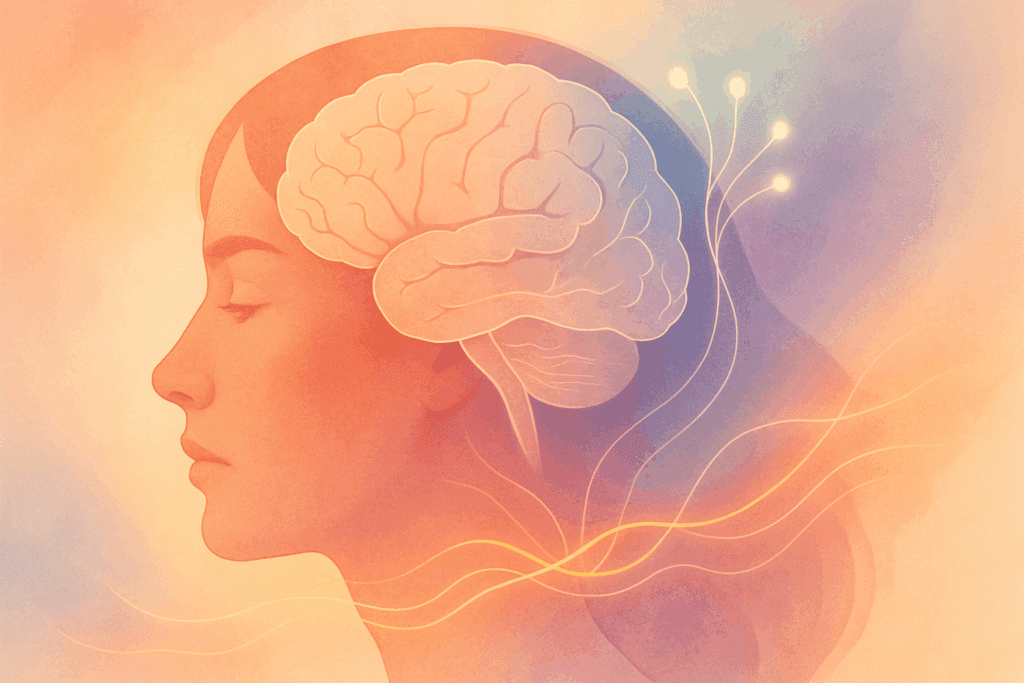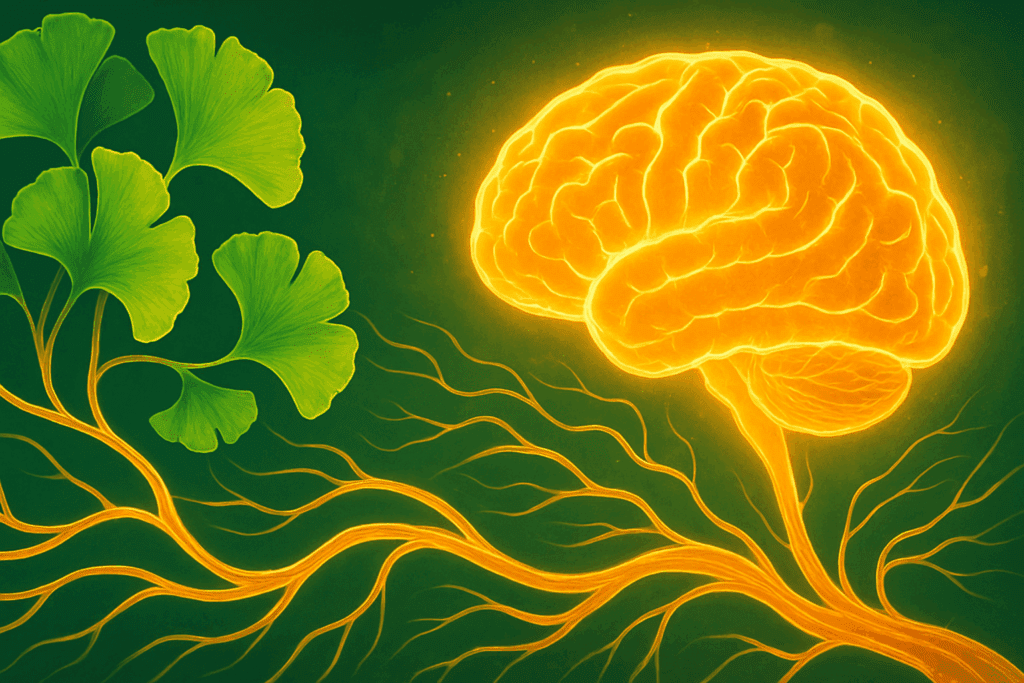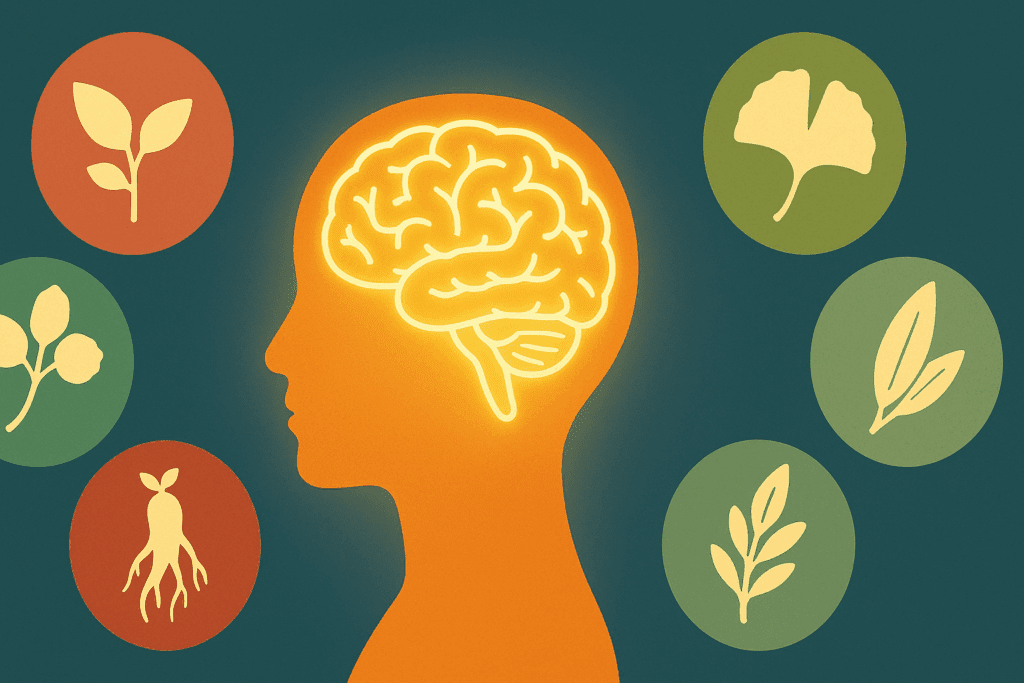Attention-deficit/hyperactivity disorder (ADHD) is often thought of in the context of young boys, but recent scientific and clinical advancements have finally spotlighted how ADHD manifests uniquely in women. From hormonal fluctuations that impact cognitive function to often-overlooked symptoms like emotional dysregulation and inattentiveness, women with ADHD frequently go undiagnosed or misdiagnosed for years. With growing interest in natural alternatives to stimulant medications, many women are turning to herbal interventions that offer support for focus, memory, and emotional balance. This article explores the top science-backed herbs for ADHD in women, providing a detailed guide on how to choose the best herb for mental clarity and cognitive support.
You may also like: Best Herb for ADHD Support: How Natural Remedies and Herbs for ADHD Women May Help Boost Focus and Calm
Understanding ADHD in Women: A Complex Neurobiological Landscape
The experience of ADHD in women can be deeply nuanced. Hormonal cycles, particularly those involving estrogen and progesterone, play a significant role in modulating dopamine levels in the brain, a neurotransmitter intricately linked to focus, motivation, and executive function. When these hormones fluctuate—such as during the menstrual cycle, perimenopause, or postpartum periods—ADHD symptoms can intensify. Women often report increased brain fog, emotional sensitivity, and difficulty concentrating during these times.
This complexity underscores the importance of integrative approaches that address the underlying neurobiology while supporting cognitive performance. Herbal remedies, when chosen with care, can offer gentle yet effective benefits by modulating neurotransmitters, improving cerebral blood flow, and reducing oxidative stress. These mechanisms contribute not only to improved focus and memory but also to better emotional regulation and stress resilience.

Rhodiola Rosea: The Adaptogen for Mental Resilience
Rhodiola rosea is a potent adaptogenic herb traditionally used in Eastern European and Asian medicine to combat fatigue and enhance mental performance. Modern studies have shown its capacity to support neurotransmitter balance, particularly dopamine and serotonin, making it highly relevant for women with ADHD.
One of the key benefits of Rhodiola lies in its ability to reduce cortisol levels and improve the body’s resilience to stress. Women with ADHD often experience heightened emotional reactivity and anxiety, which can impair working memory and executive function. Rhodiola addresses these concerns by stabilizing mood and enhancing cognitive flexibility.
Furthermore, research indicates that Rhodiola may improve reaction time, sustained attention, and task performance under conditions of mental fatigue. These effects are crucial when exploring games to improve your memory or engaging in memory boosting games, which require both attention and processing speed. Rhodiola’s neuroprotective properties may also enhance memory strengthening games by supporting synaptic plasticity and reducing oxidative damage.

Bacopa Monnieri: The Memory Enhancer with a Long History
Bacopa monnieri, also known as Brahmi in Ayurvedic medicine, has been revered for centuries for its cognitive-enhancing properties. Clinical studies have consistently demonstrated its ability to improve memory acquisition and retention, making it one of the most promising herbs for women seeking natural support for ADHD.
Bacopa’s mechanism involves modulating acetylcholine, a neurotransmitter critical for memory and learning, and reducing beta-amyloid accumulation, which is linked to neurodegenerative disorders. Women with ADHD who are searching for memory enhancement games or tips for memorizing complex information may benefit from Bacopa’s capacity to improve working memory and attention span.
Moreover, Bacopa has been shown to enhance the speed of visual information processing and improve verbal learning rates. These effects are especially useful for those using study skills memorization techniques or seeking to memorize things fast for a test. Bacopa’s antioxidant properties also protect neurons from oxidative stress, contributing to sharper cognitive function over time.

Ginkgo Biloba: A Circulatory Boost for Brain Function
Ginkgo biloba, one of the oldest living tree species, has earned its place in the pantheon of natural nootropics due to its well-documented effects on blood flow and cognitive performance. Its primary mechanism involves increasing cerebral blood circulation, which enhances oxygen and nutrient delivery to the brain.
For women with ADHD, Ginkgo’s benefits are multifaceted. Improved blood flow supports better concentration, especially during demanding tasks that require multitasking or deep focus. Ginkgo is also known to improve short-term memory, which is particularly beneficial for those engaging in memory enhancement games or trying to remember something fast.
Additionally, Ginkgo has demonstrated neuroprotective effects that may help maintain mental clarity as you age. Its use in memory strengthening games or memory methods for studying can reinforce neural networks and synaptic integrity, supporting long-term cognitive resilience. The herb may also be particularly valuable for women seeking ways to sharpen their mind during hormonal transitions or life stressors.
Gotu Kola: The Nerve Tonic for Focus and Mental Calm
Gotu kola, a revered herb in Ayurvedic and traditional Chinese medicine, is gaining recognition for its ability to support nerve health and cognitive balance. Unlike stimulants that can exacerbate anxiety or insomnia, Gotu kola offers a calming effect on the central nervous system while enhancing mental clarity.
Studies have shown that Gotu kola can improve attention span, reduce anxiety, and support overall cognitive performance. These properties make it an excellent choice for women with ADHD who are searching for ways to stay mentally sharp into your 80s and beyond without the side effects associated with conventional treatments.
Gotu kola also supports collagen production and microcirculation, which can enhance brain function by improving capillary health. When integrated into routines that include memory boosting games or strategies on how to memorize for exams, Gotu kola may amplify the brain’s ability to retain and recall information quickly. It is particularly effective when combined with mindfulness practices, offering a holistic approach to cognitive wellness.

Panax Ginseng: The Stimulating Root for Energy and Clarity
Panax ginseng, often referred to as Korean or Asian ginseng, is widely recognized for its energizing and adaptogenic properties. It has been used for centuries to combat fatigue, improve mental performance, and enhance physical stamina.
In the context of ADHD in women, Panax ginseng offers a unique advantage by supporting dopamine regulation and boosting synaptic transmission. This can lead to improved attention, faster processing speed, and greater cognitive stamina—qualities essential for engaging with games to improve your memory or when exploring how to memorize things fast for a test.
Research has also indicated that ginseng can improve working memory and reduce mental fatigue in high-stress environments. For those who struggle with sustaining focus during long periods of study, ginseng can be a powerful ally. It pairs well with good study techniques for memorization and can support both short- and long-term cognitive goals.
Sage: The Culinary Herb with Cognitive Perks
Often overlooked in discussions of herbal nootropics, sage offers powerful benefits for brain health. Modern research supports its traditional use for enhancing memory and attention, particularly in women experiencing cognitive decline associated with hormonal changes.
Sage works by inhibiting the breakdown of acetylcholine, thereby supporting neurotransmission involved in memory and learning. For women who find themselves struggling with forgetfulness or mental fog, sage can be a gentle yet effective ally.
Incorporating sage into one’s routine—whether as a supplement or culinary ingredient—can help maintain sharpness and promote memory recall. When paired with strategies like memory methods for studying or memory enhancement games, sage’s benefits can be further amplified. Its calming effect on the nervous system also makes it suitable for evening use, allowing women to stay sharp as you age without disrupting sleep patterns.

Frequently Asked Questions: Herbs for ADHD in Women and Cognitive Enhancement
What makes memory enhancement games a valuable tool for women managing ADHD?
Memory enhancement games offer more than just mental entertainment—they actively engage brain regions associated with attention, processing speed, and executive function. For women managing ADHD, these games can create structured cognitive challenges that foster mental stamina and adaptability. They also offer a non-invasive, enjoyable way to build neural networks essential for retaining information, especially when used in conjunction with herbal cognitive support. Unlike passive memorization techniques, memory boosting games require decision-making, multitasking, and feedback-based learning. These dynamics help create lasting neural changes and are ideal for reinforcing herbal interventions like Bacopa or Rhodiola.
Can games to improve your memory actually support long-term brain health?
Yes, games to improve your memory are increasingly supported by neuroscience as tools that contribute to neuroplasticity—the brain’s ability to adapt and rewire. When women engage in memory strengthening games regularly, they stimulate pathways in the prefrontal cortex and hippocampus, areas crucial for memory consolidation. Incorporating herbs like Ginkgo biloba or Gotu kola may further amplify the effects by improving blood flow and reducing oxidative stress. The combination of these games with targeted supplementation can offer women a proactive approach to maintaining cognitive health as they age. This is particularly important during hormonal shifts when attention and recall tend to fluctuate.
How do memory boosting games differ from standard study routines?
Traditional study methods often rely on repetition and rote memorization, which can be inefficient for those with ADHD. In contrast, memory boosting games often integrate time-bound tasks, adaptive difficulty levels, and sensory engagement that keep the brain alert and emotionally invested. These games promote dopamine activity, which is often imbalanced in women with ADHD. When used alongside nootropic herbs that regulate neurotransmitters, such as Panax ginseng or Lemon balm, these games become powerful cognitive training tools. They also reduce the monotony of conventional study techniques, making the process of learning more dynamic and rewarding.
Are there specific games to help your memory that work better with herbal supplements?
Absolutely. Puzzle-based memory strengthening games, like those that challenge short-term recall or spatial reasoning, pair particularly well with herbs that enhance synaptic signaling. For example, playing games that require quick mental calculations or pattern recognition while supplementing with Bacopa monnieri can significantly improve information processing speed. Similarly, memory enhancement games that involve auditory or verbal learning can synergize with sage, which supports verbal recall and acetylcholine function. The best outcomes often come from customizing the game type to the herb’s mechanism of action and the individual’s specific cognitive profile.
How do games to improve short term memory benefit women juggling career and family responsibilities?
Women managing multiple roles often experience cognitive overload, leading to forgetfulness or difficulty sustaining attention. Games to improve short term memory can serve as mini cognitive tune-ups, helping recalibrate attention systems and reinforce quick recall under pressure. They can be played in short bursts—during a lunch break or before bed—offering practical benefits without requiring large time investments. These games, when paired with adaptogenic herbs like Rhodiola rosea, can buffer the effects of daily stress and mental fatigue. The result is greater emotional regulation, quicker problem-solving, and more efficient task management.
Can memory strengthening games support academic performance during adulthood?
Yes, especially when revisiting formal education or certifications later in life. Many adult learners struggle with attention and memory retention due to competing life demands. Memory strengthening games offer an effective supplement to traditional study techniques by providing targeted, gamified training sessions that improve recall. Herbs like Gotu kola and Ginkgo biloba can further enhance academic performance by improving focus and cerebral circulation. Together, these interventions empower women to confidently pursue educational goals without feeling mentally overwhelmed.
What role do herbal nootropics play in enhancing the results of memory enhancement games?
Herbal nootropics work on a biochemical level to support neurotransmitter balance, neurogenesis, and vascular health, thereby creating optimal internal conditions for cognitive training. For instance, playing memory boosting games while supplementing with Panax ginseng can result in enhanced stamina and quicker mental recovery. These herbs help maintain cognitive performance during challenging tasks, prolonging focus and improving accuracy. They also support mood stability, making it easier to stay motivated during mentally demanding games. By reinforcing cognitive circuits built through gameplay, herbal nootropics extend the long-term benefits of memory enhancement.
How can games to help your memory be tailored to support different ADHD symptom profiles?
ADHD symptoms can vary widely, with some individuals struggling more with inattention and others with impulsivity or hyperactivity. Games to help your memory can be tailored accordingly—attention-based tasks benefit those with focus challenges, while inhibition-based games are ideal for impulsive tendencies. For example, women with attention issues may benefit from card-matching or pattern-sequencing games, especially when combined with calming herbs like Lemon balm. On the other hand, fast-paced decision games paired with Ginkgo biloba can help improve impulse control and working memory. The key is to personalize the game-herb pairing to the user’s symptom expression and daily challenges.
Do games to improve your memory offer benefits for women during hormonal transitions like perimenopause?
Yes, memory enhancement games can serve as stabilizing agents for cognitive fluctuations that often occur during perimenopause. These games stimulate brain regions impacted by estrogen and dopamine shifts, helping women maintain clarity and focus during times of hormonal turbulence. When used with herbs like sage, which is known to support cognition during menopause, the results can be profound. Engaging in these games regularly can also foster a sense of cognitive control and confidence, which is especially beneficial when memory inconsistencies become emotionally distressing. The dual approach of herbs and games provides both immediate relief and long-term cognitive resilience.
How do memory boosting games influence emotional wellbeing in women with ADHD?
Beyond cognitive perks, memory boosting games have emotional benefits. They offer structured achievement experiences that build confidence, especially in those who may have internalized years of ADHD-related setbacks. Playing memory enhancement games also triggers dopamine release, which contributes to improved mood and motivation. When paired with adaptogens like Rhodiola or emotionally balancing herbs like Lemon balm, these games can significantly elevate mental wellness. The act of daily engagement with brain-stimulating activities can create a rhythm of self-efficacy that spills into other areas of life, enhancing both cognitive and emotional outcomes.

Lemon Balm: For Emotional Balance and Cognitive Clarity
Lemon balm, a member of the mint family, is well known for its calming and anxiolytic properties. Emerging research suggests that it may also support attention and memory by modulating the GABAergic system and reducing stress-induced cognitive impairments.
Women with ADHD often experience heightened emotional reactivity, which can interfere with focus and memory. Lemon balm offers a gentle way to manage these symptoms without the sedating effects of traditional medications. It is particularly effective when integrated with activities such as memory boosting games or techniques for how to memorize something overnight.
This herb is especially useful during exam preparation or high-pressure situations. Incorporating lemon balm tea or extracts can help calm the mind while preserving cognitive performance. Its supportive effects on memory make it a valuable addition to routines that include how to remember things while studying or strategies on how to remember stuff for a test.


